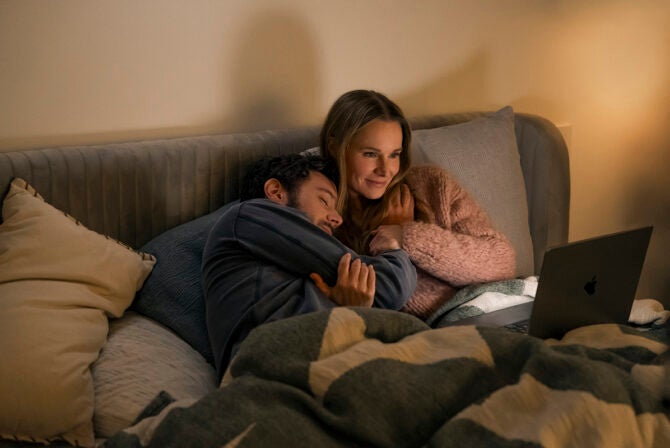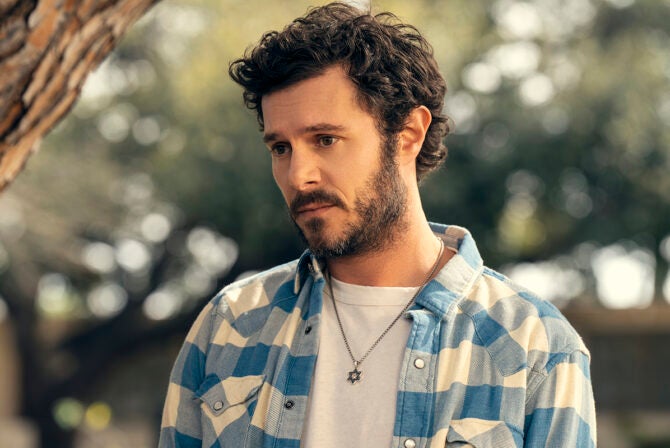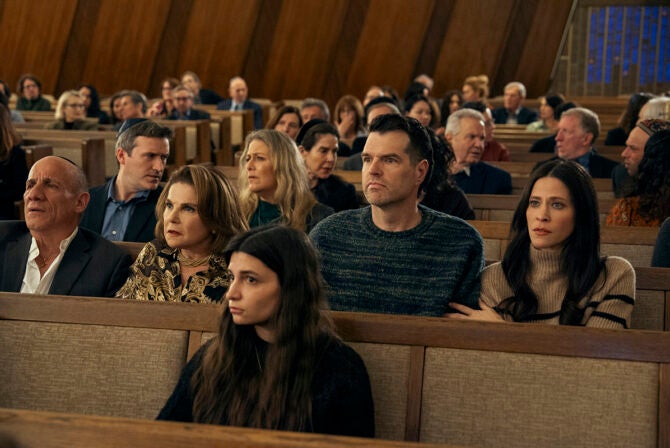In the last year or two, I’ve noticed that my oldest son has become more distant and moody. He spends hours texting alone with his friends, shirks my hugs, and generally appears annoyed and disinterested. Although I know that this can be a normal part of entering adolescence, I still feel a sting of sadness to see my once over-enthusiastic little boy morphing into a sullen teenager. I wonder sometimes if mainstream American adolescence is really “normal” or more of a cultural phenomena.
Last month, my local Chabad had a Torah Dedication Ceremony to celebrate the creation of a new Torah. Although I usually don’t push my oldest son to attend religious events, this seemed important enough to insist on. Reluctantly, he shuffled into the car alongside his exuberant brother and sister.
When we arrived at the Chabad house, I was surprised to see that, besides the regular crowd of mostly secular Jewish community members, there were dozens of black capped, Orthodox Jews from all over the country. My son turned towards me with a look of panic in his eyes.
“None of my friends are here, Mom. These are all religious people. Can I just sit in the car and play on my phone?”
I informed him that that wasn’t an option and encouraged him to give it some time. After a speech from the Sofer about how Torahs are made and a short ceremony whereby the last letters of the Torah were inscribed, we all headed outside.
What came next was like nothing I’d ever encountered. The streets had all been blocked off to make way for a procession the likes of which I’m quite certain our small, mostly Christian town has never seen.
A large van blaring Hebrew and Yiddish music led the way, followed by an arch, under which the new Torah was passed from hand to hand. Men and women carrying lit torches marched alongside children waving flags.
But, the most impressive part of all was the jubilant dancing. Men with long beards and black caps whirled around in dizzying circles, linking arms and smiling radiantly. Mixed among the older men were teenagers, not much older than my son, the first wisps of their beards-to-be sprouting in awkward patches around their chin.
These young men, who, in other circumstances would, like my son, be anxious to get back to texting with their friends, were holding hands with their fathers and grandfathers, brothers and cousins, and singing and dancing with more joy than my son has shown in months.
I saw in these young men a confidence that is often lacking in my son and his friends. It didn’t matter that they were dressed in clothes much different than the curious neighbors who had gathered in yards to watch the procession, or that they were with their fathers at an age when many boys are embarrassed be seen with family, or even that they were dancing wildly to music that was decidedly “uncool.” All of their focus was on the moment at hand and the meaning behind it.
It made me wonder if perhaps if there is a sense of meaning and connection missing from our more secular community, and, more particularly, my son’s world. Certainly, he cares about getting good grades and doing well in karate and even (although he’s reluctant to admit it right now) his family. But, he has yet to find a greater purpose in his world… something so important to him that he would dance in the streets about it, regardless of who was watching.
I noticed something else, too: a connection that is evident between young Orthodox men and the older generation. I thought back to conversations that I’d had with other Orthodox kids when I was questioning becoming more observant in college. When the kids would talk about their parents, it was always with a sense of reverence… largely because they felt like their parents held Jewish wisdom that they had yet to acquire.
Perhaps the difference with Orthodox kids is that, besides technology playing less of a role in their lives, they just naturally have more of a common thread with their parents. Because no matter what else has changed, the Torah remains the same…and if your adolescence is based on Torah values it will share commonalities, whether it happened 40 years ago or today.
I know that there are challenges in the Orthodox world as well, especially when it comes to gender and gender roles—and I don’t mean to romanticize it or simplify it. But it did make me think. Watching these teenage boys, I wondered if there is some message we can take from their exuberance, some kernel of wisdom to make this rocky transition to adulthood easier for all of us.
The answer, surprisingly, came from my son on the ride home.
“That was much more fun than I thought,” he said. “I don’t want to be religious when I grow up, but it might be nice to be part of a synagogue. It’s kind of cool to be around people who are so excited about life.”
Wherever that thought goes, that desire for “excitement about life” is perhaps the beginnings of my son’s deeper inquiry into what makes for a more meaningful existence—a search that will ultimately give him the direction he needs to grow into a confident and responsible young man.








